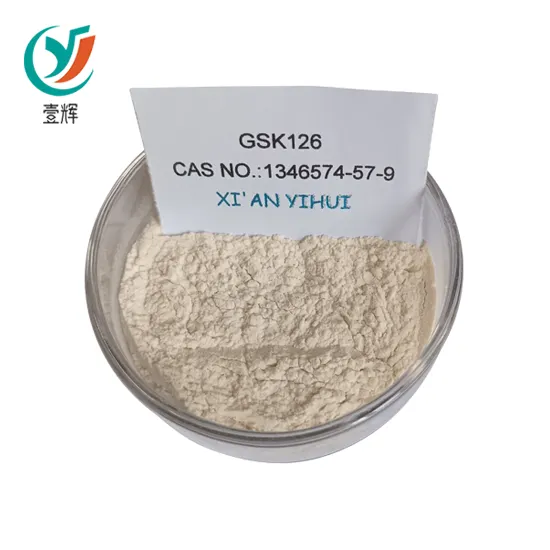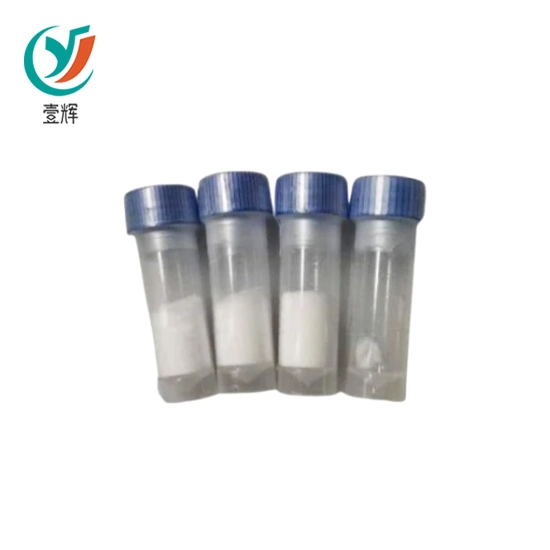PLX3397
Appearance: White powder
Standard: Enterprise Standard
Supply Ability:5000g per month
Shelf Life: Two years
Payment: T/T, LC or DA
Delivery Time: Ready Stock in Local Warehouse, 1-3 days
Origin: China
Shipping: DHL, FedEx, TNT, EMS, By Sea, By Air
Can't sell to individuals
- Fast Delievery
- Quality Assurance
- 24/7 Customer Service
Product Introduction
We supply PLX3397 (Pexidartinib )
We're proud to offer PLX3397 to our guests. This is a largely effective medicine that has been considerably studied and is known to target specific proteins involved in excrescence growth. Pexidartinib is generally used for the treatment of certain types of cancers similar as tenosynovial giant cell excrescence( TGCT) and solid excrescences. Our product has been manufactured under rigorous quality control norms to insure that it's of the loftiest quality. Our platoon of experts is devoted to furnishing exceptional service and support to our guests to insure that they've access to the stylish possible drug at all times.
What's PLX3397 Pexidartinib ?
PLX3397, also known as Pexidartinib, is a potent and largely picky small patch asset of CSF1R( colony stimulating factor 1 receptor) and c- tackle protein kinase. It's a promising remedial seeker for the treatment of cancer and seditious conditions. Pexidartinib hydrochloride has been studied in a variety of cancers similar as carcinoma, bone cancer, prostate cancer, and glioblastoma, among others.
Cancer cells constantly depend on their capability to retain and use macrophages to promote excrescence growth and metastasis. CSF1R signaling plays a pivotal part in macrophage infiltration and polarization, making it an seductive target for cancer remedy. By inhibiting CSF1R, it disrupts the excrescence medium and inhibits cancer cell growth and survival.
In addition to itsanti-cancer goods, it has also shown pledge in the treatment of seditious diseases similar as rheumatoid arthritis and ulcerative colitis. By targeting c- tackle protein kinase, it can reduce the number of mast cells and eosinophils, which are involved in the pathogenesis of these conditions.
it has experienced clinical trials and has shown favorable safety biographies andanti-tumor goods in cases with advanced solid excrescences and tenosynovial giant cell excrescences. As a result, it has been granted advance remedy designation by theU.S. FDA for the treatment of tenosynovial giant cell excrescence.
In summary, it is a largely picky asset of CSF1R and c- tackle protein kinase, with implicit remedial benefits in the treatment of cancer and seditious conditions.

Basic Information
Product Name: PLX3397
CAS No: 1029044-16-3 (free base)/2040295-03-0 (hcl)
Appearance: White powder
PLX-3397
CAS:1029044-16-3
MF:C20H15ClF3N5
MW:417.81
MDL No.:MFCD28900745
Structural formula:

PLX-3397 HCl
CAS:2040295-03-0
MF:C20H16Cl2F3N5
MW:454.28
MDL No.:MFCD30738678
Structural formula:

Assay: 98% HPLC
Origin: China
Application: Supply laboratory personnel for research purposes, not for sale to patients
Delivery Time: in stock
Technical Specification
|
Item |
Specification |
Results |
|
Appearance |
Gray powder |
Complies |
|
Purity(HPLC) |
≥98% |
98.3% |
|
Conclusion |
It complies with the requirements |
|
Package: 1g;100g;1000g or according to your demands
Storage method: Freeze dry at -20 ℃ and store in a dark place
Note: For research purposes only, not for human use
Shelf Life 24 months
Biological Activity
PLX3397 is a small patch asset that targets a receptor called CSF1R, which is involved in regulating the growth and survival of colorful cell types, including macrophages and microglia. By inhibiting CSF1R, it has been shown to have potentanti-inflammatory goods, making it a promising medicine seeker for the treatment of colorful seditious conditions and conditions.
One of the primary natural conditioning of Pexidartinib is its capability to reduce the number and exertion of macrophages and microglia in certain apkins, similar as the brain and bone gist. These cells play important places in vulnerable function and towel form, but can also contribute to inflammation and towel damage if their exertion is dysregulated. By inhibiting their growth and activation, it has shown pledge in treating conditions similar as multiple sclerosis, glioblastoma, and rheumatoid arthritis.
In preclinical studies, it has also demonstrated antitumor exertion by targeting the excrescence- associated macrophages( TAMs) that support excrescence growth and proliferation. By blocking the reclamation and activation of these cells, Pit can enhance the efficacity of chemotherapy and immunotherapy in colorful types of solid excrescences.
Overall, it is a promising medicine seeker with a different range of implicit operations in the treatment of seditious conditions and cancer. Ongoing clinical trials will help to determine its safety and efficacity in humans, and may open up new avenues for remedial intervention in these grueling conditions.
What is application
Pexidartinib hydrochloride is a promising medicine seeker with a wide range of implicit medical operations. This small patch asset widely targets and inhibits colony- stimulating factor- 1 receptor( CSF1R), a protein that plays a crucial part in the development and regulation of vulnerable cells, bone cells, and towel macrophages. By blocking CSF1R, it can affect a variety of natural processes and has shown efficacity in colorful conditions and conditions.
One of the primary operations is in the treatment of solid excrescences. By inhibiting CSF1R, the medicine can reduce the number and exertion of excrescence- associated macrophages( TAMs), which are critical for excrescence growth and vulnerable repression. In preclinical models, it has demonstrated significant antitumor exertion and has been effective against a range of excrescence types, including glioblastoma, bone cancer, ovarian cancer, and pancreatic cancer. Clinical trials are presently underway to estimate the safety and efficacity of PLX3397 in cancer cases.
it also has implicit operations in the treatment of seditious and autoimmune conditions. CSF1R signaling is involved in the activation and proliferation of vulnerable cells similar as macrophages and monocytes, which play a crucial part in inflammation. By downregulating CSF1R exertion, it can reduce inflammation and alleviate autoimmune responses. This medium of action has shown pledge in preclinical models of conditions like rheumatoid arthritis, multiple sclerosis, and lupus.
Away from cancer and autoimmune conditions, it has been delved as a implicit treatment for osteoporosis and other bone conditions. By inhibiting CSF1R signaling, the medicine can reduce the exertion of osteoclasts, which are the cells responsible for bone resorption. This has implicit operations in the treatment of osteoporosis, bone metastases, and other conditions associated with bone loss.
In summary, PLX- 3397 is a protean and potent medicine seeker with broad operations across colorful fields of drug. Its capability to widely target and inhibit CSF1R signaling makes it a promising remedial option for conditions similar as cancer, seditious diseases, and bone conditions. With ongoing clinical trials and farther exploration, it may pave the way for new treatments and bettered issues for cases.
In vitro research
In M- NFS- 60, In Bac1.2 F5 and M- 07e cells, Pexidartinib inhibits CSF1 dependent proliferation, The IC50 values are0.44 μ M,0.22 μ M, and0.1 μ M, independently.
In vivo research
In MMTV PyMT mice, Pexidartinib( 40mg/ kg,p.O. Significantly inhibits excrescence infiltration through CD45 CD11b Ly6C − Ly6G − F4/ 80 convinced by homeostasis and PTX. Pexidartinib/ PTX treatment can also lead to a significant drop in CD31 vascular viscosity in bone excrescences, accompanied by induction of cell apoptosis and necrosis. In C57 mice with GL261 excrescence cargo, Pexidartinib(p.o.) inhibits the irruption of nasty glioma cells. In CMO mice, PLX3397 significantly attenuates autoimmune conditions by reducing situations of sharp bone damage and circulating MIP- 1 α in the tail and claws. In mice loaded with B16F10 carcinoma, Pexidartinib( 45mg/ kg,p.O. Enhance CD8 intermediated immunotherapy for carcinoma.
Where to buy?
Xi'an Yihui company as a professional PLX3397produced manufacturer, has strong technical strength and advanced production equipment, and is committed to providing customers with high-quality, efficient, and reliable raw materials.
if you need Pexidartinib, pls feel free to contact us at any time. we will reply you asap.
Our contact information:
E-mail: sales@yihuipharm.com
Tel: 0086-29-89695240
Send Message
If you have any enquiry about quotation or cooperation, please feel free to email us at E-mailor use the following enquiry form. Our sales representative will contact you within 24 hours.Thank you for your interest in our products.
You may like



.webp)
.webp)






